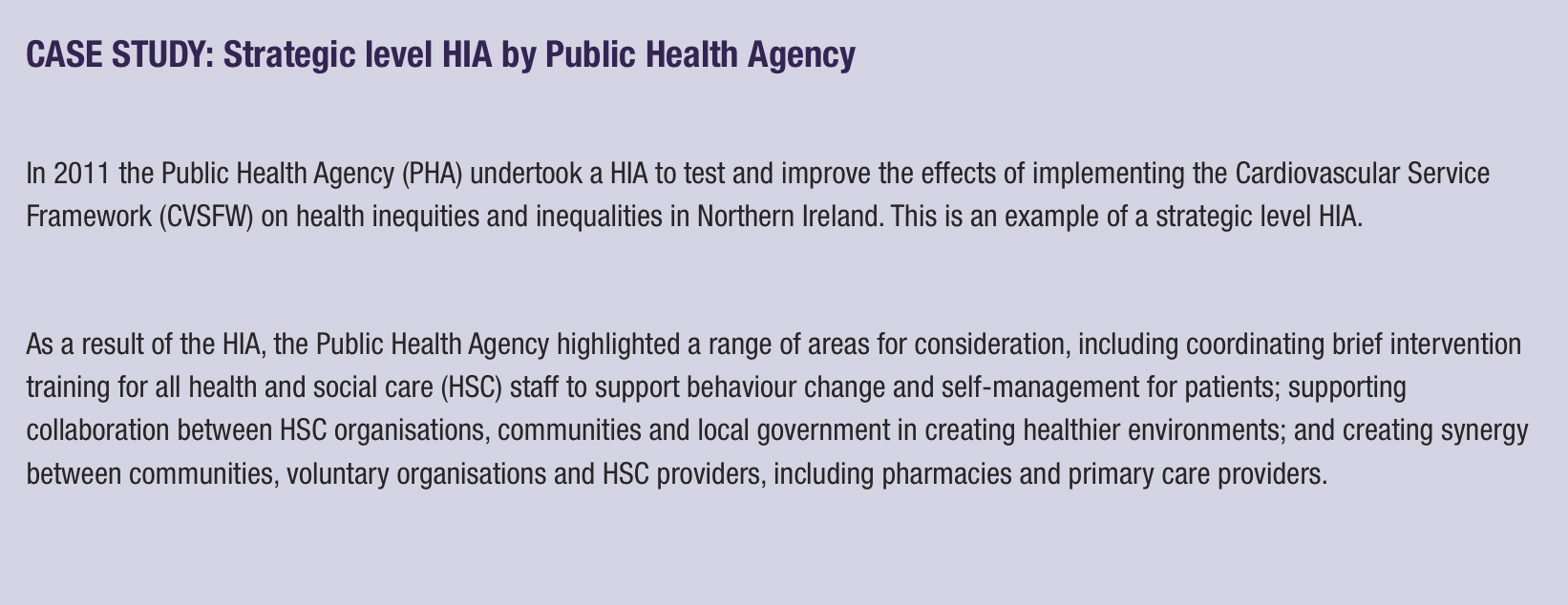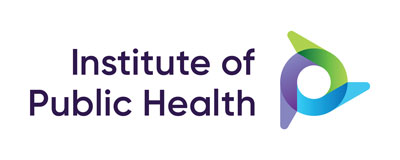Health Impact Assessment (HIA): How new HIA Guidance can help to build healthier communities

Public Health Development Officer with the Institute of Public Health, Dr Joanna Purdy, shares some insights into new Health Impact Assessment Guidance and how it can help policy- and decision-makers to ‘health proof’ new laws, policies or programmes.
As the world emerges from the Covid-19 pandemic and responds to the many challenges posed by climate change, there is an opportunity to build healthier communities. One tool that can help to do that is Health Impact Assessment (HIA), a process that can ensure that proposals are more inclusive, more equitable, and more sustainable for everyone.
The Institute of Public Health (IPH) recently published the fourth edition of HIA Guidance for Ireland and Northern Ireland, the first major update of this all-island guidance since 2009.
The work of the Institute centres on promoting health and wellbeing, improving health equity, and reducing health inequalities throughout the life course and this is a central theme of the suite of updated HIA Guidance documents. A Health Impact Assessment can be conducted on a new policy, plan or programme, otherwise known as a strategic level HIA but can also be conducted at project level.
This new HIA Guidance can assist policy- and decision-makers to assess the potential impact of a new proposal and how it might affect the health of the community or population before it is implemented.
It is designed to help community organisations, local authorities, and other policy- and decision-makers at national, regional or local level to build healthier communities and reduce health inequalities.
Incorporating the latest international and European developments and best practice in the field, the Minister for Health in Northern Ireland, Robin Swann MLA, and the Minister of State for Public Health, Well Being, and National Drugs Strategy in Ireland, Frank Feighan TD, both welcomed the suite of updated guidance documents launched in November.
At its core, HIA seeks to inform and enhance the decision-making process in favour of health and health equity while underpinning a whole-of-government ‘Health in All Policies’ (HiAP) approach to improving population health.
Making Life Better, the public health framework in Northern Ireland, acknowledges that health is influenced by factors outside the health sector, such as housing, transport, social protection, employment and environment.
HIA can play a central role in national and local decision-making to help ensure that policies and planning in these sectors have a positive impact on health and mitigate any potential negative health outcomes.
Based on the guiding principles of equity and equality, participation, sustainability, a comprehensive approach to health and ethical use of evidence, HIA also provides a unique opportunity to give com munities a voice and say on proposed laws, plans, policies or programmes that may affect their health.
munities a voice and say on proposed laws, plans, policies or programmes that may affect their health.
Whilst the guidance has been developed specifically within the policy and legislative contexts of Ireland and Northern Ireland, it is also transferable to the UK and Europe.
Health Impact Assessment is not conducted in isolation and the new guidance sets out how HIA interfaces with both statutory and non-statutory impact assessments.
When a new piece of legislation, policy, or programme is being developed, it is often subject to a number of statutory impact assessments, such as human rights and equality impact assessment.
HIA practitioners and those working in a range of sectors can conduct a standalone HIA or include health within environmental assessment, such as Environmental Impact Assessment (EIA) or Strategic Environmental Assessment (SEA), which follow the same principles, process and approach.
There can be statutory, policy, and voluntary drivers for HIA, which will determine how the health impacts of a proposal are reported, either in a standalone HIA or as health within environmental assessment.
There is no legal requirement to conduct a HIA in Ireland or Northern Ireland but this tool has the capacity to ‘health proof’ new laws, policies, programmes or projects and support better integration of health and health equity in decision-making.
The HIA process underpins the United Nations Sustainable Development Goals to reduce health inequalities and improve health equity. At a time when climate, health, and sustainability are in the spotlight, there is now a unique opportunity within our grasp to use the HIA process and this new Guidance to build healthier and more sustainable communities.
A suite of updated HIA Guidance documents has been developed for different audiences, including the general public, commissioners, policy-makers and impact assessment practitioners. The Technical Guidance document provides practical tools for each stage of the HIA process. The HIA Guidance has been endorsed by the European Public Health Association and the International Association for Impact Assessment.
For more information about this new HIA Guidance please visit www.publichealth.ie/hia.
To discuss HIA or the Guidance documents, you can contact the Institute of Public Health by emailing hia@publichealth.ie.








